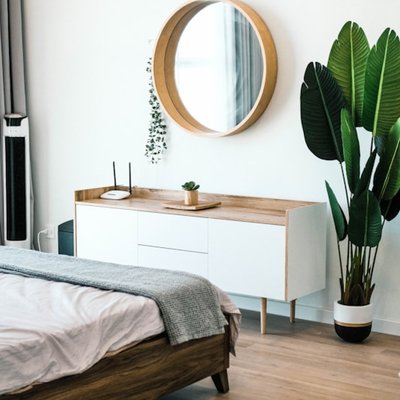has been housing
Present perfect progressive he/she conjugation of house.
- Dictionary
house
A noun is a word that refers to a person, animal, place, thing, feeling, or idea (e.g., femme, chat, maison).
a. la maison (F)
(f) means that a noun is feminine. French nouns have a gender, which is either feminine (like la dame or la lune) or masculine (like l'homme or le soleil).
We bought a larger house when our third child was born.Nous avons acheté une maison plus grande à la naissance de notre troisième enfant.
2. (household)
a. la maison (F)
(f) means that a noun is feminine. French nouns have a gender, which is either feminine (like la dame or la lune) or masculine (like l'homme or le soleil).
The phone call woke the entire house.Le coup de téléphone a réveillé toute la maison.
b. la maisonnée (F)
(f) means that a noun is feminine. French nouns have a gender, which is either feminine (like la dame or la lune) or masculine (like l'homme or le soleil).
The whole house was happy with the news.Toute la maisonnée était heureuse de la nouvelle.
3. (commerce)
a. la maison (F)
(f) means that a noun is feminine. French nouns have a gender, which is either feminine (like la dame or la lune) or masculine (like l'homme or le soleil).
Julia worked at a famous fashion house for 15 years before launching her own line.Julia a travaillé dans une célèbre maison de couture pendant 15 ans avant de lancer sa propre ligne.
b. la compagnie (F)
(f) means that a noun is feminine. French nouns have a gender, which is either feminine (like la dame or la lune) or masculine (like l'homme or le soleil).
Corbin started a software house after graduating in computer science.Corbin a lancé une compagnie de logiciels après avoir obtenu son diplôme en informatique.
4. (theater)
a. la salle (F)
(f) means that a noun is feminine. French nouns have a gender, which is either feminine (like la dame or la lune) or masculine (like l'homme or le soleil).
The house buzzed with excitement as the curtain was about to go up.La salle bourdonnait d’excitation à l’approche du lever de rideau.
5. (lineage)
a. la maison (F)
(f) means that a noun is feminine. French nouns have a gender, which is either feminine (like la dame or la lune) or masculine (like l'homme or le soleil).
The House of Borgia was very influential during the Renaissance.La maison Borgia était très influente pendant la Renaissance.
A transitive verb is a verb that requires a direct object (e.g., acheter).
7. (to contain)
a. abriter
The museum houses a collection of fifteenth-century royal garments.Le musée abrite une collection de vêtements royaux du quinzième siècle.
Conjugations
Indicative of "house"
Present | Past | Future | |
|---|---|---|---|
| I | |||
| you | |||
| he/she | |||
| we | |||
| you | |||
| they |
Collins English Verb Conjugation Tables © HarperCollins Publishers 2023
Examples
Random Word
Roll the dice and learn a new word now!




















